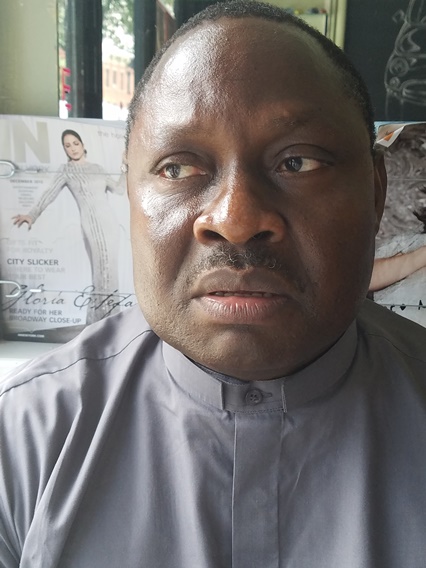|
Islamic aggression takes different form in Nigeria
Tuesday, August 9, 2016
"There appears to be some financing of the Fulani aggression."
Bishop
Charles Hammawa heads the Diocese of Jalingo, Nigeria, located in the eastern
part of the country’s so-called “Middle Belt.” The population of 2.3M is about equally
divided between Muslims and Christians, 450,000 of whom are Catholic, with 10
percent of the people belonging to traditional religions. On a recent visit to
New York, the bishop expressed his concern about what he labeled “suspiciously
persistent” attacks by well-armed Muslim Fulani herdsmen on Christian farmers
and a growing influx of Muslim settlers taken possession of land taken from
these farmers. He spoke Aug. 8, 2016 with international Catholic charity Aid to
the Church in Need.
Boko Haram
appears to be curtailed, and there are fewer attacks by the group. However, you
have reported another manifestation of Islamic extremism in the form of these
attacks by Fulani herdsmen on Christian farmers.
That is my suspicion—that jihad is taking a new course. It
looks like a problem between herdsmen and farmers. In the past, things would
settle down after a clash. But I have seen cases of herdsmen not just letting
their cattle graze but taking over the land—and Muslim from the north coming in
to settle there. It appears to be a strategy to deliberately populate areas
with Muslims and, by the sheer weight of superior numbers, influence political
decision-making in the region. It is not the extreme violence of Boko Haram,
but another way of capturing Nigeria for Islam. And this crisis has been
sustained for the past three years in our region. It’s also suspicious that the
herdsmen have access to sophisticated weaponry. There appears to be some financing
of the Fulani aggression, which has left numerous dead, destroyed many communities
and displaced thousands of people.
Are Muslims
and Christians in competition in the “Middle Belt,” where neither religion has
the upper hand?
Both faiths are committed to gaining new followers. The
difference lies in the approach. Christianity uses persuasion through
preaching. For Islam, it can be the case of a kind of coercion—the
understanding that if you want to get anywhere in government, you have to be a
Muslim. For example, the office of traditional rulers is presented as belonging
only to Muslims, which prompts some Christians eligible to the throne to
convert to Islam.

In this
regard, how do you rate the policies of President Muhammadu Buhari—is he being
fair to Christians?
I have some doubts. He is very cautious and a little bit slow
in condemning the Fulani crisis, for example. I wish he would be stronger in
making firm statements in this matter and take concrete action in combatting
Islamic extremism. My worry is that—although Boko Haram members have been
killed or are awaiting trial—the organization is laying low, with members
hiding out in various places. Violence could readily flare up again.
What is the
solution, in your view, to putting a real stop to Islamic extremism?
We keep saying that dialogue must be the solution. But the
parties do have to come to the table with a sincere willingness to live in
peace. Also, it must be acknowledged that many of the rank-and-file of Boko
Haram had been neglected by the Muslim elite in the north for a long time.
These youth and adults have not been properly educated, because Western
education has been rejected; they have been living in the margins of the
society, with only a fundamentalist Islamic formation. They are filled with
anger and they have nothing to lose. Meanwhile, the Muslim elite send their
children to be educated abroad! No wonder, Boko Haram eventually targeted
Muslim leaders as well.
Do you and
your priests use your homilies to address these issues?
We avoid inflaming hostilities; we preach peace and
reconciliation; we urge Christian farmers not to retaliate—at most, we encourage
them to defend themselves; but we cannot tell them to go and fight—that would
violate the spirit of the Gospel. There definitely is a great fear of
persecution among Christians, which brings some of them to compromise or hide
their faith. Those who remain steadfast deserve our utmost support.
Are local
authorities, such as the police, of any help? Unfortunately,
corruption and bribery hamper security efforts. Corruption, of course, is
rampant all across Nigeria.
ACN photo
|